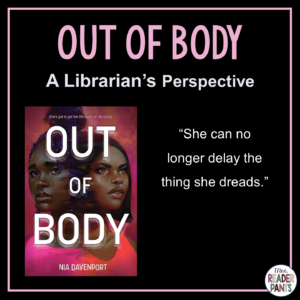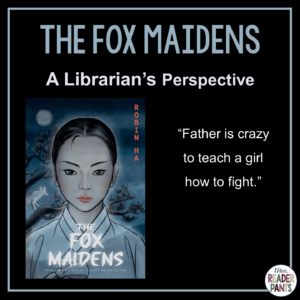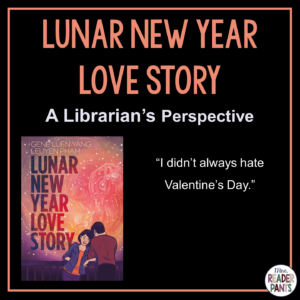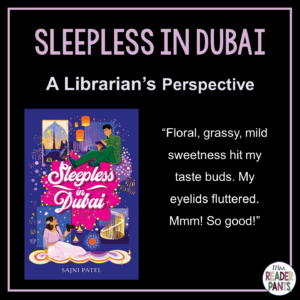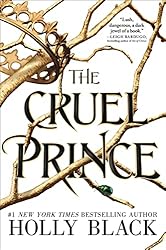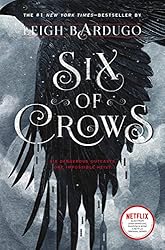I’ve seen high praise for Red Hood, but it was kind of a mess for me. I reviewed Damsel last year, which is also written by Elana Arnold. I didn’t love or hate that book, but I did compare it to a bad car wreck. Damsel won a 2019 Printz Honor, which really surprised me because it felt very much like an adult book. Red Hood also feels more like an adult book than one for teens. It was a weird one for me–even weirder than Damsel was, as impossible as that seems.
 AUTHOR: Elana K. Arnold
AUTHOR: Elana K. Arnold
PUBLISHER: Balzer + Bray
PUBLICATION DATE: February 25, 2020
PAGES: 361
GENRE: retelling, paranormal
SETTING: Seattle, Washington; modern-day
GIVE IT TO: adults
SUMMARY OF RED HOOD
Sixteen-year old Bisou has given up on ever getting her first period, but one night, while intimate with her boyfriend, she does. Embarrassed, Bisou runs out of the car they are in and into the surrounding woods. It isn’t long before she encounters a large wolf, which attacks her. Bisou kills the wolf and goes home. The next day, a teen boy from her high school is found naked in the woods–in the same place where Bisou killed the wolf.
THE SHORT VERSION
Meh, I have some issues with it that I’ll get into in a minute. I didn’t really like it and probably would not buy it for my high school library. I had trouble with slow pacing, second-person narration, unanswered questions, and honestly, the whole premise. I’m shocked that it got three starred professional reviews.
WHAT I LIKED ABOUT RED HOOD
Hmmm…this is a tough one. What did I like about this weird story? There were some parts that kept me turning the pages. These were more in the beginning and middle, where Bisou is trying to figure out what’s happening to her. I found myself skimming more as the story went on.
I like Elana Arnold’s writing style. Both of the books I’ve read by her have featured beautiful, descriptive writing. Both Damsel and Red Hood are unique stories that condemn toxic masculinity.
WHAT I DIDN’T LIKE ABOUT RED HOOD
I have many issues with Red Hood, so I’m going to go rapid-fire here:
- I didn’t feel like I knew or understood any of the characters.
- Bisou’s boyfriend is waaayyy too perfect.
- Ugh, second-person narration. Why?
- Lots of unanswered questions about the nature of the wolves (more on that coming up)
- The climax felt very anti-climactic. A lot of long build-up about driving to the destination to confront the “big, bad wolf,” then it’s over quickly.
- A lot of talk and descriptions of menstruation.
WHAT’S UP WITH THESE WOLF-BOYS?
I’m going to focus this part of my review on the unanswered questions. It bothered me that so many things about the wolves went unexplained. Why do some boys become wolves and others do not? Is it supposed to be some sort of cosmic punishment for toxic masculinity? Is it inherited, like Bisou’s wolf-hunting abilities?
The characters who became wolves–at least the ones we know about–are all guilty of some sort of bad male sexual behavior against females. Things like attempted rape, sexual harassment, and lying about having an STD. Are these boys even aware that they become wolves? Do they have any control over it? Do they enjoy it? Do they ever attack men? Since they are hunted and killed because they are wolves attacking women (only women are attacked in the story), this would be good information to know.
BISOU: THE ULTIMATE JUDGE, JURY, AND EXECUTIONER
What would have been a really interesting twist is if Bisou’s ridiculously-perfect boyfriend became a wolf. I kept hoping that would happen. Could Bisou kill her boyfriend? Or would she help the wolf-version of him live because he is so stinkin’ special? Or maybe he would deserve to be guided to a safe location instead? He’s not like all the rest, y’all!
My point is, the book treats the boy-wolves as though they do not deserve to live. I get that they are attacking and killing women. I get that the wolves’ deaths are in self-defense or to save the life of another. But it seems the only boys who become wolves in the first place are those teen boys who pose a danger to women. The “toxic masculinity” crowd. The wolves are never the quiet, nerdy little guy in the corner. It’s certainly never Bisou’s Mr. Perfect boyfriend.
Is murder really the only answer here? How is Bisou qualified to be the judge, jury, and executioner of boys who may not even be aware of their wolf-y actions? Why is the only option on the table the hunting and murder of teen boys?
The book treats these boys as though they deserve to die because of their toxic masculinity. Our society absolutely has a problem with men who prey on women, but the answer isn’t that these men automatically deserve to die. It’s especially hard for me to forget that these are still teenage boys who may or may not be aware of what they are doing in their wolf-forms. Why is killing them the only possible answer?
NO GIRL WOLVES?
My other issue with the toxic-boys-become-wolves thread is that boys are not the only ones who are toxic. What punishment does the universe bestow on girls who do bad stuff? Girls are horrible to each other, too. Do they become death machines when they treat other girls badly? Do they also deserve to die for a metamorphosis that they may not be able to control?
WHY IS NO ONE HELPING THESE BOYS?
If the boys become wolves because of their toxic masculinity, what cosmic power decides that this boy will become a wolf and this boy will not? Who makes that call? And if this has been going on for centuries (as is implied), why does no one know about it? Why is it not discussed? Why does no one help the boys to NOT become wolves and die? Why is hunting and killing teen boys a better option than trapping them until they morph back into humans, then trying to help them “not become wolves,” as Bisou puts it? Considering the number of domestic abuse, murder, and rape cases in our court system, why do we not have many, many more wolves running around and terrorizing women?
Anyway, this issue is the crux of the entire story, so it really needs to be better-explained. As readers, we are expected to just agree with the notion that Bisou’s killing wolves (who she knows are teen boys) and hiding their bodies is inevitable and just. But without knowing if the boys choose to be wolves and can control their behavior as wolves, I just cannot get behind that idea. And I certainly do not support the conclusion that vigilante murder is the only answer to this problem.
DIVERSITY
Bisou’s boyfriend is mixed race, and her new best friend is Black. There aren’t many characters in the story, but the rest, including Bisou, her grandmother, and another friend, assume a white default.
ARTWORK / ILLUSTRATIONS
No artwork in the story, but I do like the cover art.
LIBRARIANS WILL WANT TO KNOW
- Themes: toxic masculinity, misogyny, feminism, friendship, murder, vigilante justice, assassins, hunters, family secrets, werewolves
- Would adults like this book? I’m not sure. Like Damsel, this one feels more adult to me. I don’t know who I would recommend it to.
- Would I buy this for my high school library? Only if students requested it.
- Would I buy this for my middle school library? No. See content warnings below.
MATURE CONTENT
Language: The book has been returned to the library, so I cannot check for specific language. It’s been a couple of weeks since I finished it, but I don’t remember gratuitous profanity. I often don’t notice it though and rely on the e-book’s Search features to find it.
Sexuality: high–oral sex, regular teen intercourse, sexting, creepy and unauthorized sharing of nude photos, stalking, STDs (herpes), threat of rape, lots of innuendo, a boyfriend cheats on his girlfriend, Bisou’s dress comes down and exposes her breasts when she kills her first wolf
Violence: high–Bisou is tracking and killing boys that morph into wolves. Plenty of blood and descriptions of wolf-death. Blood–menstrual and human/wolf blood–is all over this story.
Drugs/Alcohol: teens get drunk at parties
Other: lots of talk of menstruation, descriptions of menstruation, Bisou’s grandmother befriends Bisou’s two new girlfriends and they all become great friends. The friendship and activities with the grandmother has a coven-feel to it. If Bisou’s grandmother were a man, her behavior would feel wildly inappropriate.











